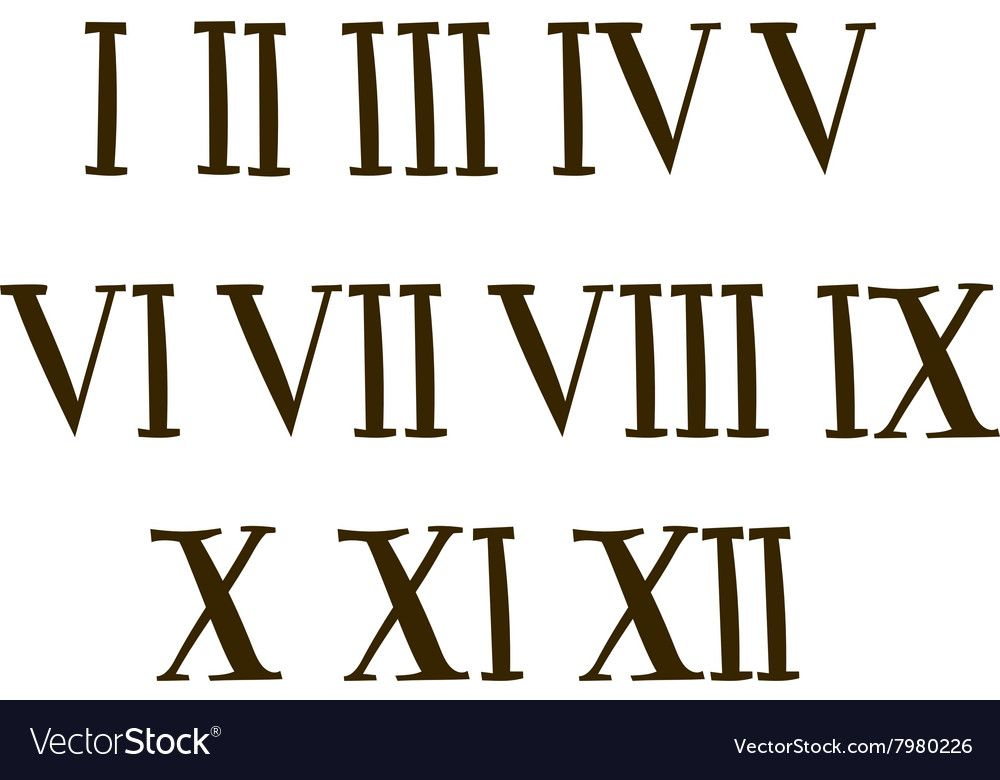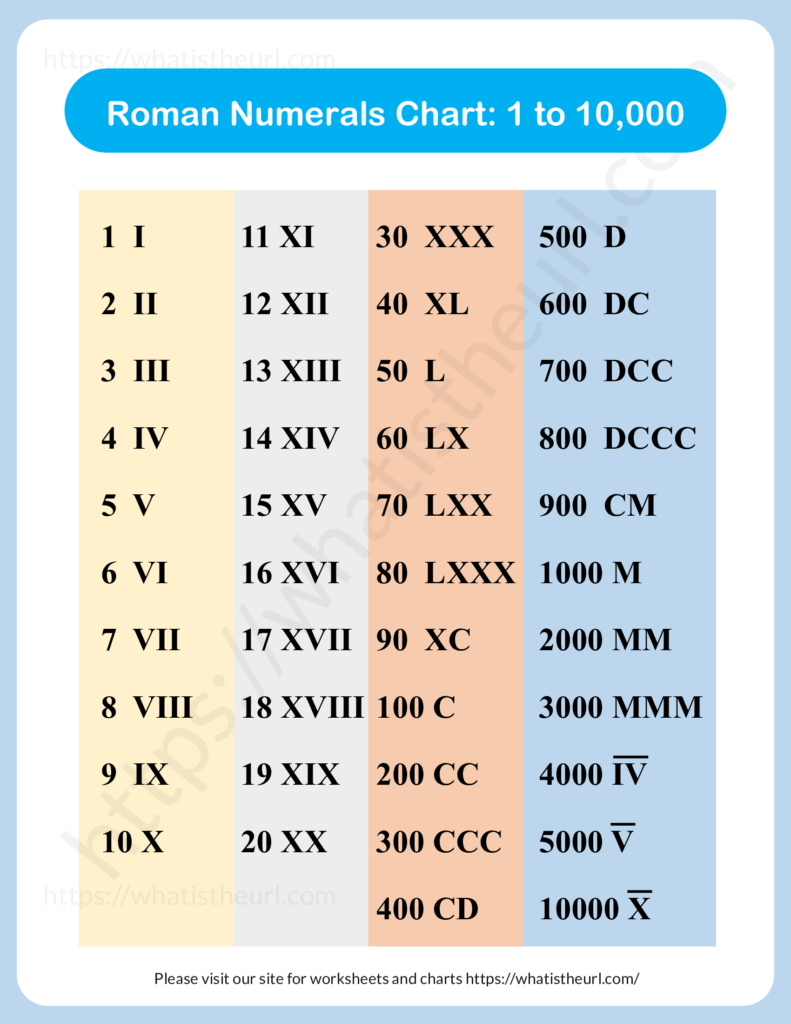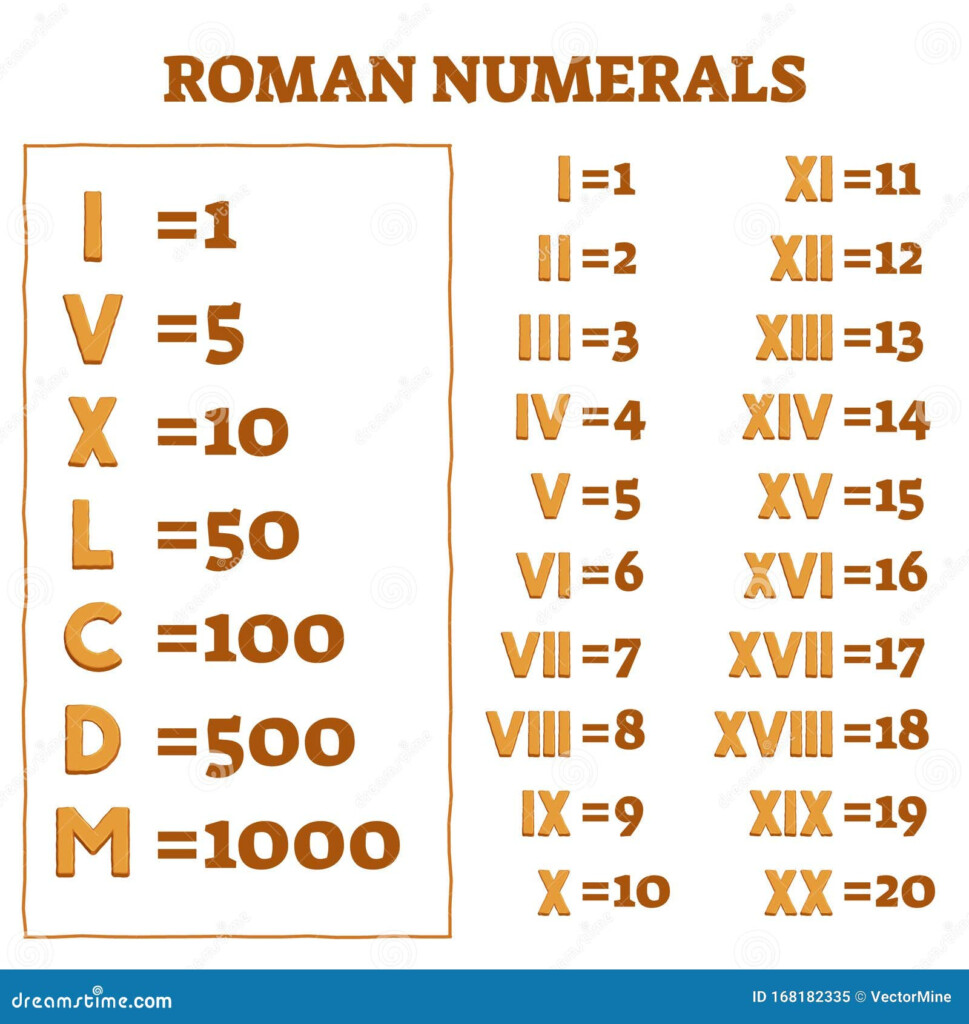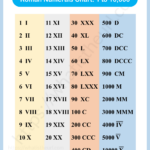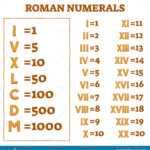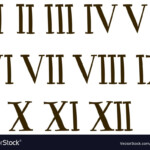Www Roman Letters And Numbers – Roman numerals, commonly used to write European numbers, are most commonly used. In the early part of the Middle Ages, they were the norm following their invention in ancient Rome.
In addition
The Roman numerals, a standard set of mathematical symbols, are used. The letters have to be put in the proper order to achieve the expected results. They can be used to calculate an additive number system that uses a zero, or to represent a number such as the book number.
Math was utilized by Romans to organize their construction projects as well as manage their military records. Roman-inspired counting board designs were very popular throughout Europe up to the Middle Ages.
As the Romans became more advanced in their the years of their lives, they created an elaborate system that could allow for more multiplication and division. They used decimal systems that consisted of four letters and a ten numbers. These same numbers were used for the abacus which was a device with glass counters that also has beads.
The most complex system of calculation was the abacus. This method of organizing numbers from left to right. Long division was not feasible with this method.
Subtraction
Roman numerals are used for many purposes. They employ symbols as the basis numbers of an subtractive system. They are commonly employed to represent numbers, indicate hierarchical connectionsor to represent dates. But, they can also be employed in photography to represent different brightness levels.
Romans represented numbers using an Abacus. The abacus they used had the look of a well-known object. This device was used for military accounting as well as for counting by the Romans. Three unciae could be used to represent 25 percent of the Roman army.
The Roman numerals system was created to ease multiplication as well as addition. This was accomplished by using the letters C and X. The symbols were not able to be changed unlike the current Abacus.
It was also simple to subtract numbers due to the Roman numerals. Roman numerals demand that each letter is followed by at least 10 times the letters. Also, the letter’s original value should be lower than the one that is replaced.
The Stairstep pattern is an fractal
There are many fractal-like patterns and forms found in nature. For instance, the Roman numerals and stairstep patterns. Designers, engineers, architects, and other professionals have used fractal geometric to create intricate digital creations.
Recursion is an mathematical concept that generates fractions. It is a method for solving issues. To make the Dragon’s Curve for instance, you can start with the square-based U letter. You then multiply the region by 4. With each iteration you expand the area between the sides of the square.
Another example of recursive construction is the Sierpinski-Triangle. This triangle is constructed from four smaller triangles of similar shape.
Fractal concepts were initially linked to the physical modeling methods. Technology-advanced computational algorithms have made it possible to replicate vegetable forms.
The fine-grained sophistication of fractal branching in nature is one of its main advantages. It has a zoom symmetry and a structural appearance.
Different fields of study can provide various explanations for why branches look like trees. But, sunlight is the only thing that a tree requires for photosynthesis. In addition, branches that resemble trees have mechanical advantages.
Origins
Roman numerals are a result of Rome which was an ancient city. They perform many functions in the modern world. They are used to determine the date of media, for instance. They are also mentioned in the titles and names of popes and monarchs.
Roman numerals are thought to originate from tally sticks that were utilized by Roman Empire shepherds to keep track of their flocks. However, the exact origins of these numbers is not established. Depending upon the type of sheep, the tenth would feature an “X”-shaped cut-out on a wooden tally stick.
These images remained in use for a long time after the fall of the Western Roman Empire. Then, the Arabic systems replaced them. In the sixteenth century, these numbers were gaining widespread acceptance following their introduction to Europe in the eleventh century.
Roman numerals are being employed, even though they are simpler to recall than the Arabic system. They appear frequently in clocks, sporting events, and the names of popes and kings.
